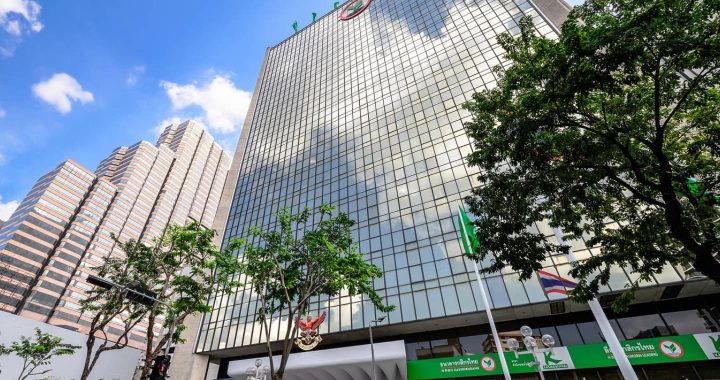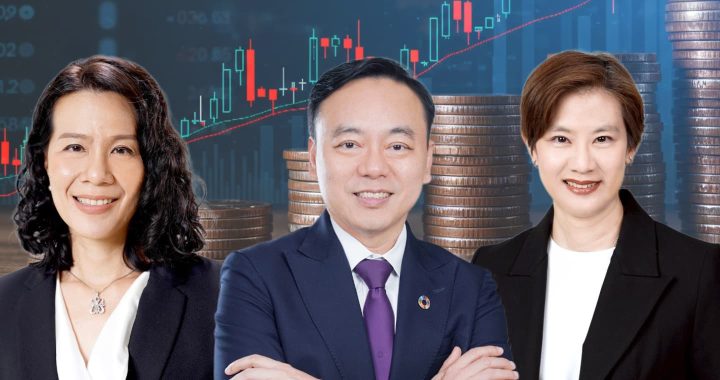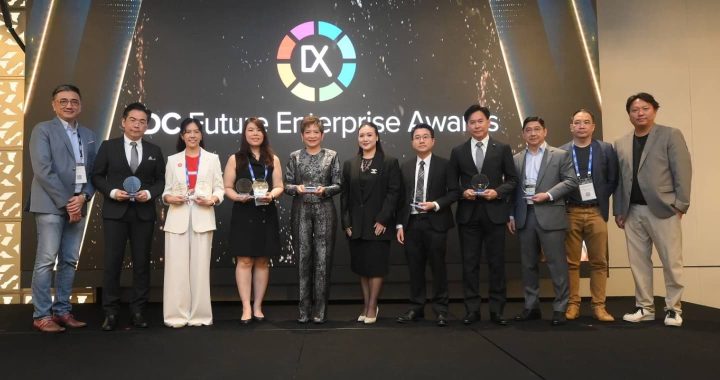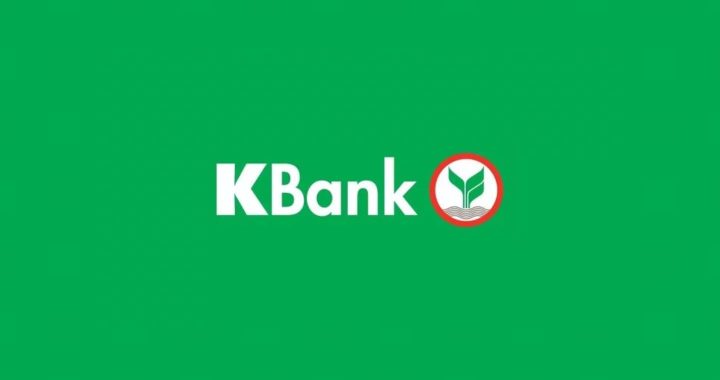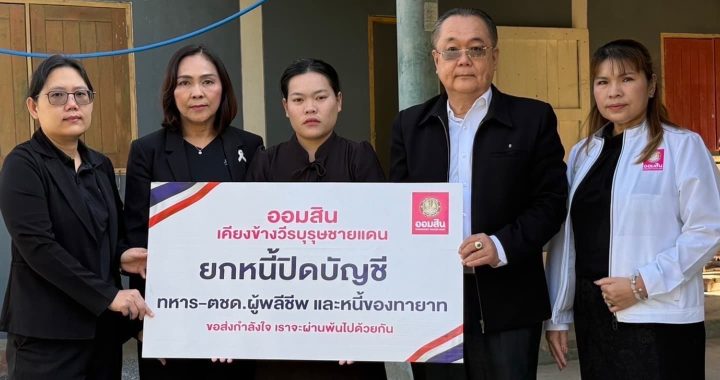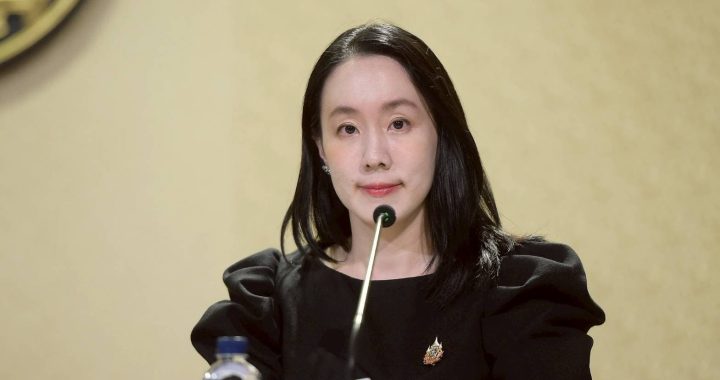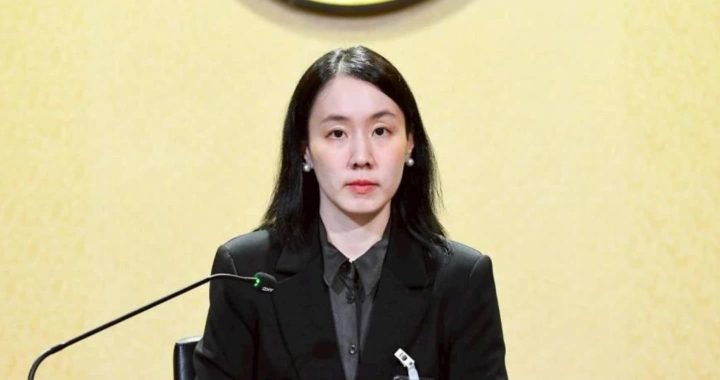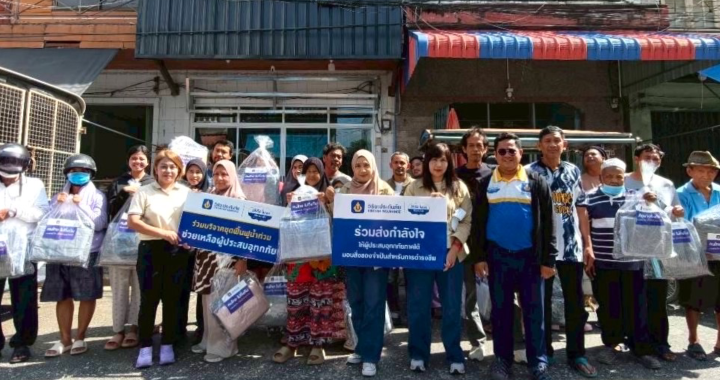BOT Governor Concern Thai’s High Debt/GDP, Bubble in Property Business.

26-7-2019—Bank of Thailand Governor notice bubble trend in Thailand’s property business and higher debt per GDP ratio among Thai people. Remind business operator aiming for sustainability.
At Thai institute of Director or IOD’s conference on 24-July-2019 held at The Atthenee Hotel Bangkok, a part of Bank of Thailand Governor’s speech “Formulating for the Future of Corporate Governance” mention that during the past 2-3 years, the real estate business has expanded and very high competitive. The business operator using various sales promotions tools; price reduction, taking buyers to travel abroad, guaranteeing a minimum return from renting real estate, while the purchase of non-residential real estate investment increased, noticed by the number of people who have many real estate loan contracts at almost the same time.
Banks themselves compete for more housing loans. By easing the credit approval criteria beyond appropriate, the new loan with high loan-to-value (LTV) ratio has continue increased steadily and the ratio of NPLs of housing loans increased accordingly.
In addition, we also found the behavior of providing loans for housing in the amount that is much higher than the value that customers actually buy, so called “Change Money Loan” Causing customers get large cash back to spend.
There are more customers who has more than three (3) loan contracts for housing at the same time, expect for a big change of money but not really for living.
The behavior produced over necessary debt an aggravate Thailand’s household debt problem to be more severe. Moreover promote speculation on false believe that the only way of house price is to be increased or can be rent at a good price forever.
, which is not true. It resulting in artificial demand for speculation and causing the real estate price to increase rapidly, motivate the creation of new projects beyond the actual needs.
Reducing the standard of lending until the bubble occurred in the real estate market is no longer sustainable and in the long term, there will be a negative impact on both the real estate project owner, financial institution lender and to the customers themselves. If not helping prevent early care when the bubble breaks down, it will create huge side effects to everyone when the value of property in Thailand reduced, as the house is an important property of Thai people.
“Everyone would agree that doing business with only short-term benefits aiming for too fit profit without taking into account the side effects that will affect the way of life of people in the community, society or environment. It will not be sustainable in the long run.”
If the directors and executives of those companies adhere to the principle “Conducting business for sustainability” by paying attention to good corporate governance within the organization and good governance in a broad sense. Taking into account the negative externality that the business has for society and the environment, such behavior resulting property bubble will not be happen. Because in the end, those effects will return to impact the business itself, both in reputation financial or litigation benefits, which may affect the business to stop.
Conducting business that does not adequately consider society and the environment, causing problems and risks that respectively accumulate in the society and the Thai economy continuously and severely.
In terms of society, Thai society is a society with a lot of inequality. Information of the National Economic and Social Development Board found that many Thai people still in “Debt traps”.
At present, Thailand has the highest level of household debt in the world compared to countries with similar development levels. Thailand has 78.7 percent of household debt per GDP, which may be partly resulted from the business sector motivated customers to buy extravagant items or induce excessive debt.
According to the research from the Institute of Economic Research, Puey Ungphakorn found that “Thai people are in debt faster, owe longer and more in debt, owed bad debts at a young age. People aged 30-35 years, nearly 60 percent have debt.While one of the five of these people who have debts owe bad debts, while these people are working people who are in the process of building a family foundation.
Thai people still owe for a long time. The debt per capita has accelerated since the start of work or about 25 years old and accelerated until the age of 44 years old. The debt balance remained at a high level until the age of 56, debt is still at a high level, despite entering retirement age.
Thai people have more debt value, mean value of the debt per capita are more than double from approximately 70,000 baht at the end of 2010 to approximately 150,000 baht at the end of 2017. Such information has not counted informal debts, saving cooperative debt and education fund loans debt. Therefore, if the total debt burden comes in, the debt will be even higher and the problem of household debt and inequality in society is a problem that seriously needs to be solved together.
In addition to household debt problems, environmental issues are issues that the business sector may not be focusing on continuously. Environmental issues will become more severe in the future and will not be limited to only the drought that occurs seasonally and fades away. Global warming may cause some industries permanently to stop their businesses.
There are new epidemics in plants or livestock, water shortage in many areas, especially in major cities Or the rising sea level problem due to the world’s highest average temperature in history
In Thailand, we use more than 500 million plastic bags per day and have the world’s sixth highest rate of plastic garbage dumping in the world. These plastics, when decomposed, will become very small plastic parts that enter the seafood chain and return to create a danger for all of us in the future.
Sustainable business operations must start from creating a wide and far-sighted corporate culture. Must take into account all risks importance to good governance within the organization and good governance in the broad sense that is concerned with society and the environment.
In an era when social and environmental problems become more severe, including investors, consumers, and people in society to focus on these matters more. A company
that is a leader in business for sustainability with standards that are as high as the severity of the problem will gain a lot of competitive advantage and in addition to increasing the efficiency of doing business. These companies will determine the direction and standards of new business.
On the other hand, any company that ignores these matters in addition to create social and environmental problems and creating a reputation and financial risk of the company will still have to chase after new regulatory rules or social standards come out and may affect the sustainability of the business.
In addition, the Bank of Thailand has revised the rules for overseeing various types of lending to reduce side effects that might occur in the long term, such as supervising housing loans, Credit card loans, Personal loans and car loan, to prevent from financial institutions, issuing rules governing the market conduct for financial service users to receive fair services, create a debt relief clinic project to help small debtors, have a chance to break out of the bad debt trap, including creating a project to educate and create financial discipline for the general public.
Creating change “Sustainable business operation”will be a key challenge and problem for the future of all sectors, especially the “Board of Directors” that will have the most important role in determining the direction and policy of the company, supervising business operations must start with creating a wide and far-sighted corporate culture and taking into account the risks and impacts, creating an appropriate internal incentive system, not just pay benefit to executives and employees base on short-term profits only.
“I believe that the future business world will not be in the context that we are familiar with in the past. Social and environmental problems will intensify and the business sector will no longer be able to avoid this role. Consumer behavior that is more attentive and responsible to society and the environment will make businesses that are not concerned about sustainability have very little chance of success in the long run and will face a lot of risks and vulnerabilities.
Therefore, good governance in the next generation needs to be a good governance in a broad sense must cover more than just corporate governance aimed at the organization, but must consider the business that does not create side effects or negative impacts to society and the environment. The business must have a far-reaching and broad-looking corporate culture.
Today, the ecosystem that promotes sustainable business has developed very far. Enabling companies that do sustainable business to benefit in many dimensions, from access to new funding sources to attracting new generation personnel
Companies that do business sustainably will have more options to access funding than companies that do not focus on sustainable business practices. Because financial institutions are more careful with lending to companies which have the opportunity to create side effects for the environment and society. These side effects may not allow the project to continue and becomes a credit risk of financial institutions.
In addition, the funding channels through the issuance of bonds that are considered environmentally responsible and sustainable (green bond, social bond and sustainability) bond) is becoming more popular.
Investments in businesses that focus on sustainability and social responsibility or to create sustainable, responsible, and impact investing (SRI) worth more than US $ 12 trillion in 2018, up from US $ 8.1 trillion in 2016, because many studies show that investment in companies that do business sustainably provides a higher return on investment than investing in a general company.
Because companies that do business sustainably have higher business standards, higher efficiency, has a more comprehensive risk management system and more importantly, has a strategy that is far-reaching and looks wider than general companies.
In Thailand, we has been raising funds through green issuance, bond and sustainability bond more than 30 billion baht and the establishment of additional funds to invest in businesses that adhere to sustainability and social and environmental liability principles
In addition, companies that focus on sustainability and social and environmental responsibility also have the opportunity to attract new generation personnel with high potential to join the event better than other companies.
In today’s world, the new generation with high potentials is more important to the “impact” and “purpose” of the work that is done, rather than just the reward itself.
The whole world is committed to conducting business for sustainability and social and environmental responsibility seriously and it is gratifying that a small number of Thai businesses have driven this matter concretely
In the financial sector, the Bank of Thailand and financial institutions are driving the concept of financial business for sustainability. By emphasizing the importance of corporate governance and good governance in a broad sense, create a strong corporate culture and take into account the risks in all aspects, conducting business that is fair to consumers, supporting environmentally friendly business, avoid financial support
for businesses that are involved in corruption and businesses that have a negative impact on the environment and society, including giving more importance to the credit release with responsibility, not aggravate household debt problems and continuously support the cultivation of financial discipline and create financial knowledge for the people.
In addition, the Bank of Thailand has revised the rules for overseeing various types of lending to reduce side effects will be occurred in the long term, such as supervising housing loans Credit card loans Personal loans and car loan pledge, to prevent competition from financial institutions Issuing rules governing the market conduct for financial service users to receive fair services Create a debt relief clinic project To help small debtors have a chance to break out of the bad debt trap Including creating a project to educate and create financial discipline for the general public
Honorable person Creating change “Sustainable business operation” will be a key challenge and problem for the future of all sectors, especially the “Board of Directors” that will have the most important role in determining the direction and policy of the company. And supervising business operations Must start from creating a wide and far-sighted corporate culture Taking into account the risks and impacts Including creating an appropriate internal incentive system Not paying compensation to executives and employees based on short-term profits only
I believe that the future business world will not be in the context that we are familiar with in the past. Social and environmental problems will intensify. And the business sector will no longer be able to avoid this role Consumer behavior that is more attentive and responsible to society and the environment Will make businesses that are not concerned about sustainability have very little chance of success in the long run And will face a lot of risks and vulnerabilities.
Therefore, good governance in the next generation needs to be a good governance in a broad sense. Must cover more than just corporate governance aimed at the organization But must consider the business that does not create side effects Or negative impacts to society and the environment The business must have a far-reaching and broad-looking corporate culture. I would like to thank the IOD for the importance of business practices based on sustainability. And will drive this matter into the next important agenda.



